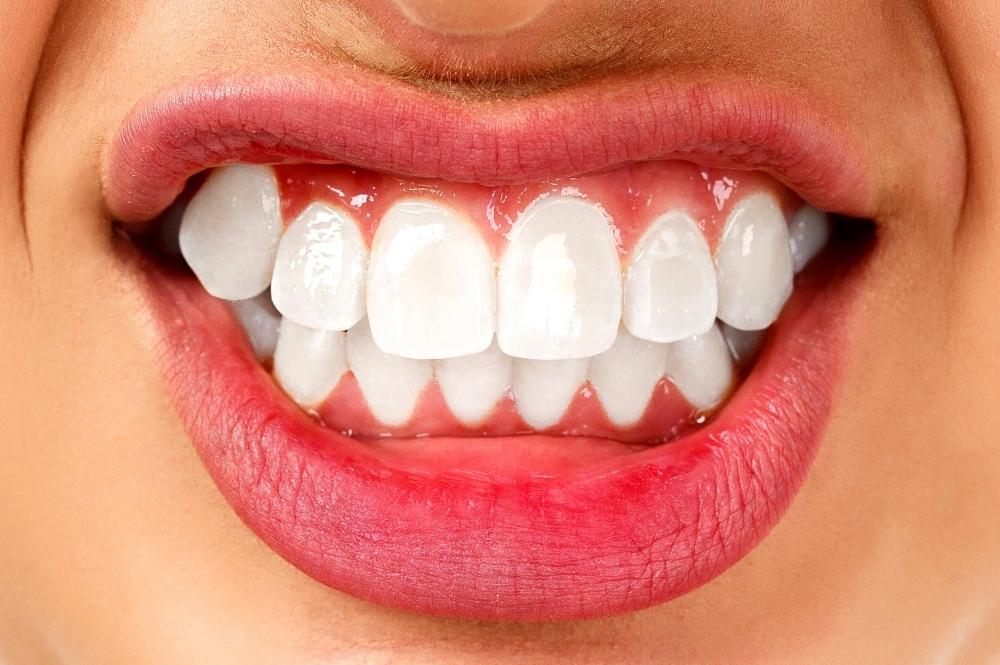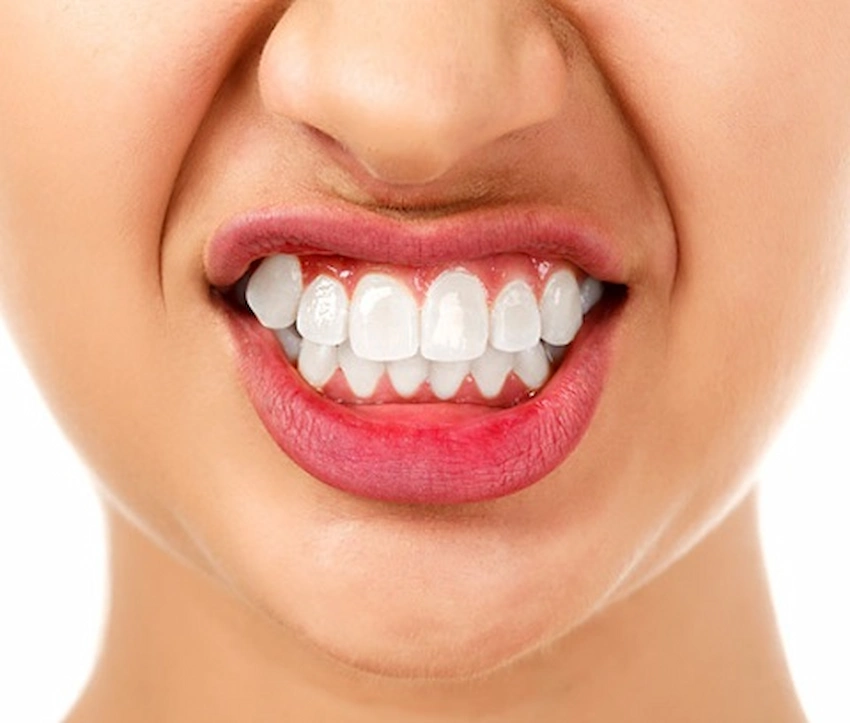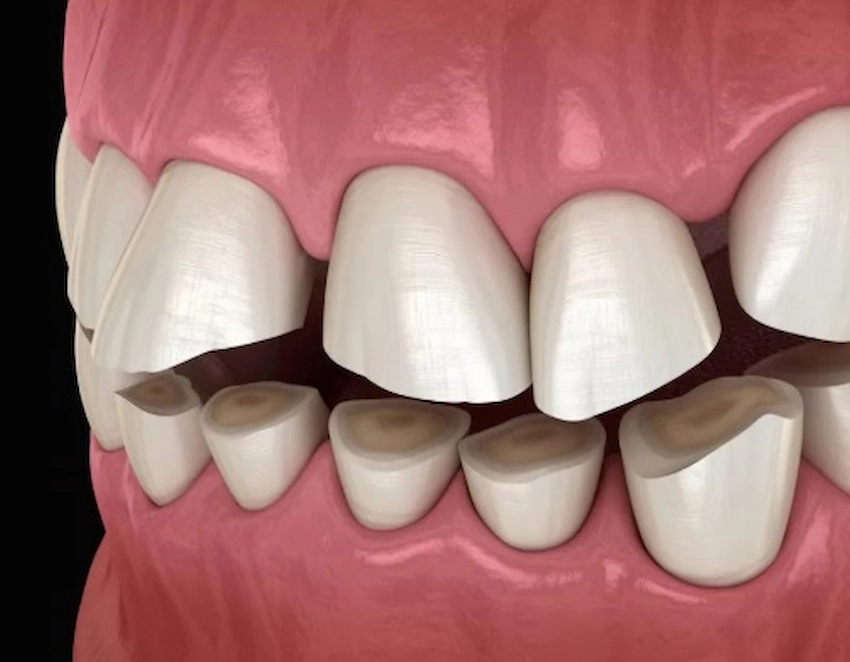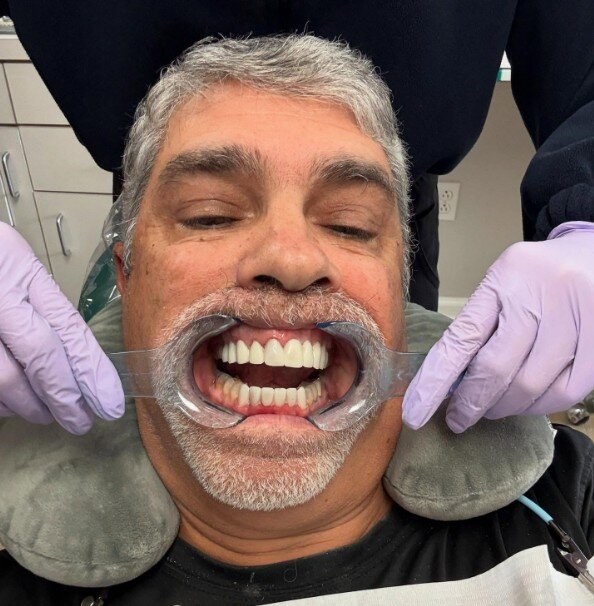🦷Understanding Bruxism Causes, Symptoms, and Effective Treatments

Bruxism, which is the medical term for the action of the grinding of teeth or clenching of teeth, affects millions of people all over the globe. It is a dental problem that is frequently disregarded and could create a plethora of complications and ramifications when treatment is delayed.
When receiving care in our clinic, Lema Dental Clinic, we specialize in diagnosing, diagnosing and treating bruxism in order to help patients attain improved health and comfort in dental practices. The article that follows will look at the phenomenon that is bruxism, the reasons behind it, the signs to watch for, and the different approaches that can be used to properly handle this relentless disorder.
What is Bruxism and Why Does it Happen?
Bruxism denotes the action of clenching or grinding the teeth, more commonly while one is sleeping, although it can also develop unconsciously also during waking hours due to stress and anxieties of daily life. The need to treat and stop bruxism is only viable when there is a good grasp of the reasons for its occurrence. In the search for effective ways to manage the problem one must understand the causes of the condition from the root.
Causes of Bruxism
Bruxism is a condition that can be caused by different factors hence to understand this condition it is important to note the underlying factors that may affect an individual. These specialists mention that there are environmental, psychological and physiological problems.
- Stress and Anxiety: One of the main causes of bruxism is emotional stress. Many patients facing high levels of stress or those suffering from anxiety disorders resort to clenching their teeth as a defense mechanism against these emotions.
- Misaligned Teeth or Bite Issues: Medically known as malocclusion, teeth that are crooked can potentially lead to an improper bite thereby causing unintended grinding, clenching, or grinding of teeth whenever the body tries to find an easy bite.
- Sleep Disorders: Any condition that causes a person to sleep fitfully, including sleep apnea affects one’s sleep pattern favoring teeth grinding and worsening the condition because of frequent waking up may promote bruxism onset and progression.
In determining the risks and mechanisms associated with bruxism, our team can prepare an effective targeted plan of treatment aimed at eliminating the symptoms and preventing further injury to the teeth and their structures. By correctly diagnosing and treating the causes of this treatment we provide many patients the opportunity to enjoy healthy teeth and satisfactory lives.
Symptoms and Impact of Bruxism

Bruxism is a condition characterized by the grinding of teeth, which may lead to several symptoms although not easy to detect, but if you do have those symptoms you can control it before it worsens. These symptoms may emerge as very mild or very serious and probably you wouldn’t even think that they affect your general state of health and the state of the teeth, gums and other accessories of the dental system. This is because teeth have a major role of chewing food through breaking down food to make it more digestible to the body.
Common Symptoms of Bruxism
The most frequently reported and easily recognised symptoms of bruxism are the loud grinding sounds that can often be heard by someone sleeping beside the individual who grinds their teeth and any visible signs of wear or damage to the teeth, especially in the form of loss of enamel or teeth that are more sensitive than others. The reason for this can surely be attributed to the great amount of tension build up in the jaw muscles because of the grinding elaborate and very influentially to other parts of the body such as the jaw.
The fact that bruxism creates sleep problems such as difficulty sleeping well and lack of energy is also very common because the frequent grinding that happens at night affects the quality of sleep that an individual has. Hence, through early espionage of these symptoms and, in detail possible understanding of the nature of the symptoms, it is possible to treat the condition in its incipient stages before it advances to causes that cannot be mentioned as minor as teeth decay and extreme pain.
- Teeth Grinding Sounds: More often than not detected by a spouse or partner snoring, grinding teeth sounds during sleeping may indicate a person has bruxism.
- Tooth Wear and Damage: Grinding considerably changes the shape of teeth over time which leads to enamel wear, sensitivity of teeth as well as fractures and other problems that may catch one by surprise!
- Jaw Pain and Headaches: The terrible habit of teeth grinding puts undue stress on jaw muscles that causes pain at the joint (TMJ) or soreness throughout the anatomy as well as tension-type headaches which are frequency increasing.
- Sleep Disruptions: Patients with bruxism experience disturbed sleep cycles owing to the constant grinding while at night leading them to considerable fatigue throughout each day.
If you notice any of these signs, it is very important for you to seek assistance from an experienced dentist. With a passion for performing precise assessments and treatment approaches, Lema Dental Clinic is your go-to place for bruxism evaluation and checking your dental health condition among others.
Effective Treatments for Bruxism
There are several effective treatments and management techniques for bruxism, which can be prescribed and are based mainly on the severity of this condition, as well as its underlying causes and the specific needs of each patient.
- Mouth Guards and Splints: Teeth grinding can cause severe wear and tear on the teeth and as a preventive measure, mouth guards are custom-fitted by the dentists to create a barrier between the upper and lower jaws. It will cushion the jaw and prevent further dental injuries.
- Stress Management Techniques: Many patients grind their teeth due to stress and it is important to learn to manage such stress for adequate therapy. Techniques such as mindfulness meditation and cognitive-behavioral therapy or some changes in daily life can bring much positive change to such patients and proper assistance that will help them to stop grinding their teeth.
- Dental Corrections: Some cases of teeth grinding can be caused by abnormal alignment of the teeth or jaw which leads to the improper bite that may in turn cause discomfort. In this case, braces, retainers, and other orthodontic approaches may be utilized to correct such problems and thus reduce the incidence of bruxism.
- Medications: For severe bruxism, your dentist may prescribe muscle relaxants or anti-anxiety medication to reduce tension in the jaw muscles and the occurrence of teeth grinding
The Treatment Process and Duration
A successful treatment of bruxism begins with a detailed assessment by the dentist to gauge the level of severity of this condition and evaluate the right options and steps that should be observed while treating this condition.
After the diagnosis, dentists can provide an overview of the treatment plan and outline the options based on the particular approach. The duration of treatment will also vary according to the treatment methods selected; braces can take a bit longer as compared to mouth guards which can be used immediately.
Medications can provide instant relief while physical and psychological therapies might take time to yield results. However, with total commitment, patience, and appropriate measures, it is possible to provide effective and long-term relief from this disabling disease and enjoy life to the fullest.
When receiving care in our clinic, Lema Dental Clinic, we specialize in diagnosing, diagnosing and treating bruxism in order to help patients attain improved health and comfort in dental practices. The article that follows will look at the phenomenon that is bruxism, the reasons behind it, the signs to watch for, and the different approaches that can be used to properly handle this relentless disorder.
What is Bruxism and Why Does it Happen?

Bruxism denotes the action of clenching or grinding the teeth, more commonly while one is sleeping, although it can also develop unconsciously also during waking hours due to stress and anxieties of daily life. The need to treat and stop bruxism is only viable when there is a good grasp of the reasons for its occurrence. In the search for effective ways to manage the problem one must understand the causes of the condition from the root.
Causes of Bruxism
Bruxism is a condition that can be caused by different factors hence to understand this condition it is important to note the underlying factors that may affect an individual. These specialists mention that there are environmental, psychological and physiological problems.
- Stress and Anxiety: One of the main causes of bruxism is emotional stress. Many patients facing high levels of stress or those suffering from anxiety disorders resort to clenching their teeth as a defense mechanism against these emotions.
- Misaligned Teeth or Bite Issues: Medically known as malocclusion, teeth that are crooked can potentially lead to an improper bite thereby causing unintended grinding, clenching, or grinding of teeth whenever the body tries to find an easy bite.
- Sleep Disorders: Any condition that causes a person to sleep fitfully, including sleep apnea affects one’s sleep pattern favoring teeth grinding and worsening the condition because of frequent waking up may promote bruxism onset and progression.
In determining the risks and mechanisms associated with bruxism, our team can prepare an effective targeted plan of treatment aimed at eliminating the symptoms and preventing further injury to the teeth and their structures. By correctly diagnosing and treating the causes of this treatment we provide many patients the opportunity to enjoy healthy teeth and satisfactory lives.
Symptoms and Impact of Bruxism
Bruxism is a condition characterized by the grinding of teeth, which may lead to several symptoms although not easy to detect, but if you do have those symptoms you can control it before it worsens. These symptoms may emerge as very mild or very serious and probably you wouldn’t even think that they affect your general state of health and the state of the teeth, gums and other accessories of the dental system. This is because teeth have a major role of chewing food through breaking down food to make it more digestible to the body.
Common Symptoms of Bruxism
The most frequently reported and easily recognised symptoms of bruxism are the loud grinding sounds that can often be heard by someone sleeping beside the individual who grinds their teeth and any visible signs of wear or damage to the teeth, especially in the form of loss of enamel or teeth that are more sensitive than others. The reason for this can surely be attributed to the great amount of tension build up in the jaw muscles because of the grinding elaborate and very influentially to other parts of the body such as the jaw.
The fact that bruxism creates sleep problems such as difficulty sleeping well and lack of energy is also very common because the frequent grinding that happens at night affects the quality of sleep that an individual has. Hence, through early espionage of these symptoms and, in detail possible understanding of the nature of the symptoms, it is possible to treat the condition in its incipient stages before it advances to causes that cannot be mentioned as minor as teeth decay and extreme pain.
- Teeth Grinding Sounds: More often than not detected by a spouse or partner snoring, grinding teeth sounds during sleeping may indicate a person has bruxism.
- Tooth Wear and Damage: Grinding considerably changes the shape of teeth over time which leads to enamel wear, sensitivity of teeth as well as fractures and other problems that may catch one by surprise!
- Jaw Pain and Headaches: The terrible habit of teeth grinding puts undue stress on jaw muscles that causes pain at the joint (TMJ) or soreness throughout the anatomy as well as tension-type headaches which are frequency increasing.
- Sleep Disruptions: Patients with bruxism experience disturbed sleep cycles owing to the constant grinding while at night leading them to considerable fatigue throughout each day.
If you notice any of these signs, it is very important for you to seek assistance from an experienced dentist. With a passion for performing precise assessments and treatment approaches, Lema Dental Clinic is your go-to place for bruxism evaluation and checking your dental health condition among others.
Effective Treatments for Bruxism
There are several effective treatments and management techniques for bruxism, which can be prescribed and are based mainly on the severity of this condition, as well as its underlying causes and the specific needs of each patient.
- Mouth Guards and Splints: Teeth grinding can cause severe wear and tear on the teeth and as a preventive measure, mouth guards are custom-fitted by the dentists to create a barrier between the upper and lower jaws. It will cushion the jaw and prevent further dental injuries.
- Stress Management Techniques: Many patients grind their teeth due to stress and it is important to learn to manage such stress for adequate therapy. Techniques such as mindfulness meditation and cognitive-behavioral therapy or some changes in daily life can bring much positive change to such patients and proper assistance that will help them to stop grinding their teeth.
- Dental Corrections: Some cases of teeth grinding can be caused by abnormal alignment of the teeth or jaw which leads to the improper bite that may in turn cause discomfort. In this case, braces, retainers, and other orthodontic approaches may be utilized to correct such problems and thus reduce the incidence of bruxism.
- Medications: For severe bruxism, your dentist may prescribe muscle relaxants or anti-anxiety medication to reduce tension in the jaw muscles and the occurrence of teeth grinding
The Treatment Process and Duration
A successful treatment of bruxism begins with a detailed assessment by the dentist to gauge the level of severity of this condition and evaluate the right options and steps that should be observed while treating this condition.
After the diagnosis, dentists can provide an overview of the treatment plan and outline the options based on the particular approach. The duration of treatment will also vary according to the treatment methods selected; braces can take a bit longer as compared to mouth guards which can be used immediately.
Medications can provide instant relief while physical and psychological therapies might take time to yield results. However, with total commitment, patience, and appropriate measures, it is possible to provide effective and long-term relief from this disabling disease and enjoy life to the fullest.
Frequently Asked Questions About Bruxism
Bruxism is a parafunctional oral habit defined as the unconscious teeth grinding or clenching most sleep and daytime. Although most people think it is harmless, if not; The oral history leads to a range of subsequent recommendations, including tooth wear, jaw pain, and headaches, all of which can result in irreparable damage. To manage bruxism efficiently, it is important to be aware of the causes among others its symptoms and the treatment available. However, in this post, we will be attending to the frequently asked questions regarding bruxism so as to give you a better planes of the condition and various treatment options available.
Bruxism is the involuntary grinding or clenching of teeth, often occurring during sleep but can also happen during the day, typically in response to stress or anxiety. It can lead to tooth damage, jaw pain, and headaches.
Bruxism can be caused by various factors, including stress, anxiety, misaligned teeth, and sleep disorders such as sleep apnea. Emotional tension and physical factors like an improper bite often contribute to this condition.
Common signs of bruxism include waking up with a sore jaw, tooth sensitivity, noticeable wear on teeth, and headaches. A dentist can confirm the diagnosis through a physical examination and sometimes with the help of dental imaging.
Yes, bruxism can cause significant damage to your teeth over time. It can lead to enamel erosion, cracks, fractures, and even tooth loss if left untreated.
Treatment options include custom-made mouth guards, stress management techniques, dental corrections like orthodontics, and in some cases, medications to relax the jaw muscles or reduce anxiety.
Yes, bruxism can cause sleep disturbances. The grinding and clenching can result in poor sleep quality, leaving you feeling tired or fatigued upon waking.
Bruxism is quite common, with many people experiencing it at some point in their lives. It can affect anyone, but it is most prevalent in individuals under stress or those with sleep disorders.
In some cases, bruxism may subside on its own, especially if it is stress-induced and the stress is reduced. However, if left untreated, it can lead to serious dental and health issues.
Yes, it is important to see a dentist if you suspect bruxism. A dentist can assess the severity of the condition, offer treatment solutions, and help prevent long-term damage to your teeth.
While bruxism may not be completely preventable, certain strategies can help reduce its occurrence. These include stress management, using mouthguards, and addressing any underlying dental or sleep issues.




